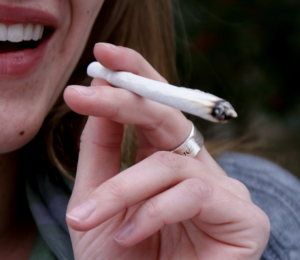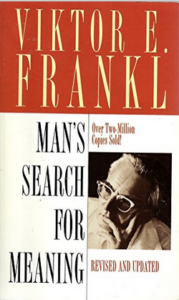Popular platitudes are wrong; marijuana destroys the soul
The Washington Post just published a seven-question quiz for readers to answer the question: “Am I using too much weed?” The quiz is designed to help you know if you’re developing “dependency” – while adding the reassuring popular platitude: “As with alcohol, most people who use cannabis recreationally are doing so responsibly.”
 What on earth does this word mean, “responsibly?” Responsible to whom, or what? Obviously no one and nothing. The word is a soothing euphemism to hide the reality of what marijuana is about: addiction. I could add to that: immaturity
What on earth does this word mean, “responsibly?” Responsible to whom, or what? Obviously no one and nothing. The word is a soothing euphemism to hide the reality of what marijuana is about: addiction. I could add to that: immaturity
The questions are thoroughly idiotic because they are a jumble all kinds of motivations for using cannabis: relaxation, socializing, handling stress, getting to sleep, improving a vacation – and I can imagine many others – better sex, fabulously interesting thoughts and perceptions, a new way of seeing the ordinary world around, feeling “in the groove” and connected at a deeper level, etc. etc.
The one consideration that no one talks about: Marijuana destroys any ability to have a real spiritual life. Yes, it can soothe and relax and present itself as “spiritual,” but that’s all a lie.
The truth is that there’s one central motivation within all of these apparent motivations: the avoidance of spiritual maturity. We go to any lengths to numb away the unpleasant truths about our lives and ourselves that are calling us to change, even change for the better.
 Most people, and I count myself as a prime example, are struggling desperately to avoid those nagging inner pains of truth that are prodding us to pay attention. Rather than turn inward to examine what these bad feelings might mean, we are distracted to a thousand temptations calling us outside ourselves. Worries about work, difficulties in families, feelings of doubt and insecurity, grievances and resentments, even just plain boredom with the way things are. “If I just think and figure and organize, I’ll fix the problem! And if problem isn’t fixed yet, well, I just haven’t thought and figured and organized enough yet!”
Most people, and I count myself as a prime example, are struggling desperately to avoid those nagging inner pains of truth that are prodding us to pay attention. Rather than turn inward to examine what these bad feelings might mean, we are distracted to a thousand temptations calling us outside ourselves. Worries about work, difficulties in families, feelings of doubt and insecurity, grievances and resentments, even just plain boredom with the way things are. “If I just think and figure and organize, I’ll fix the problem! And if problem isn’t fixed yet, well, I just haven’t thought and figured and organized enough yet!”
Of course, most of us can’t imagine that the problem isn’t outside us at all,  but inside. Karl Rahner, the Catholic theologian, wrote that most people think God owes them an explanation for the way things are and never stop to wonder if the opposite is true, that they owe God an explanation for their contribution to the way things are.
but inside. Karl Rahner, the Catholic theologian, wrote that most people think God owes them an explanation for the way things are and never stop to wonder if the opposite is true, that they owe God an explanation for their contribution to the way things are.
Viktor Frankl, the Holocaust survivor and therapist, says very much the same. In Man’s Search for Meaning he puts it like this: Most of us have questions about life, but few have considered that actually, life is posing questions to us. What are our answers? Do we even know not answering is an answer?
 Here’s another quiz for you: Do you think life is a series of hurdles and obstacles constantly interfering in our own noble plans? Or is life challenging us to live more honestly, more charitably, with greater kindness and even work harder for the common good, even the common spiritual good?
Here’s another quiz for you: Do you think life is a series of hurdles and obstacles constantly interfering in our own noble plans? Or is life challenging us to live more honestly, more charitably, with greater kindness and even work harder for the common good, even the common spiritual good?
The 12-Step program of Alcoholics Anonymous proposes that the greatest problem that we have in life is not other people or circumstances but our own misdirected instincts.
“Our desires for emotional security and wealth, for personal prestige and power, for romance and family satisfactions – all these have to be tempered and redirected. We have learned that the satisfaction of instincts cannot be the sole end and aim of our lives.
If we place instincts first, we have got the cart before the horse; we shall be pulled backward into disillusionment. But when we are willing to place spiritual growth first – then and only then do we have a real chance. (Twelve Steps and Twelve Traditions, pg 114.)
Of course, most of us have no idea how self-centered our instincts have become. We think we’re good people who were handed a bad deal in life. No one likes to admit we’re actually taking as much as we can from life and giving as little as possible. Even if our actions appear altruistic, are we giving with a hidden motive for getting some reward? Applause? Prestige? Appreciation? Maybe a promotion where we’ll have the power to really straighten things out?
There are many ways to describe spiritual growth, and the traditional religions are full of the teachings of spiritual masters to guide us. But in my experience, the true spiritual paths are all exceedingly difficult. They require letting go of our own control, our own understanding and expectations, even our fondest desires. We need to be stripped bare in order to be prepare for spiritual gifts of a higher order.
However, at every turn, an escape route beckons, the “easier softer way,” as it’s described in AA. The way of “half-measures.” And this culture is filled with them. This culture rewards all the addictions with the bitch goddess of success. Work-aholism drains the life out of the young. Greed for power and wealth corrupts those on Wall Street and in Washington, D.C. Sensuality is portrayed as love in Hollywood, and sexual intimacy is now the recreational finale to a “good date.”
No wonder the cloud of marijuana looks harmless. It’s very invisibility makes it so much more sophisticated than alcohol. You think no one knows if you’re high, or you change clothes and no one can smell it.
But here’s the problem: once you take an escape route, you’ve accepted it as an option – and the option will reappear – and reappear -and reappear – and before you know it, you’ve worn a rut in the road into your cave of illusion and learned to live in it. At some point, you’ll decide the cozy cave is a better place after all, and you can hibernate inside yourself, in your drugged self-centeredness as long as you like.
I’ve had many, many addictions, even some that no one around me would think were addictions, but here’s the test that I propose: If you want to find out why you’re smoking, stop entirely. And stay stopped.
 The movie Beetlejuice shows what happens. All the sand snakes that you’ve avoided by hiding inside the house of self will fall out of the sky and try to swallow you whole.
The movie Beetlejuice shows what happens. All the sand snakes that you’ve avoided by hiding inside the house of self will fall out of the sky and try to swallow you whole.
If you’re lucky, you’ll find yourself on your knees begging for help – and guess what? Help has been waiting for you all the time. You only needed to ask… if you’re willing to put down the pipe, or bong, or sugar, or carbs, or babe, or frantic schedule… and feel the pain of healing the wounded sores inside.
<◊>